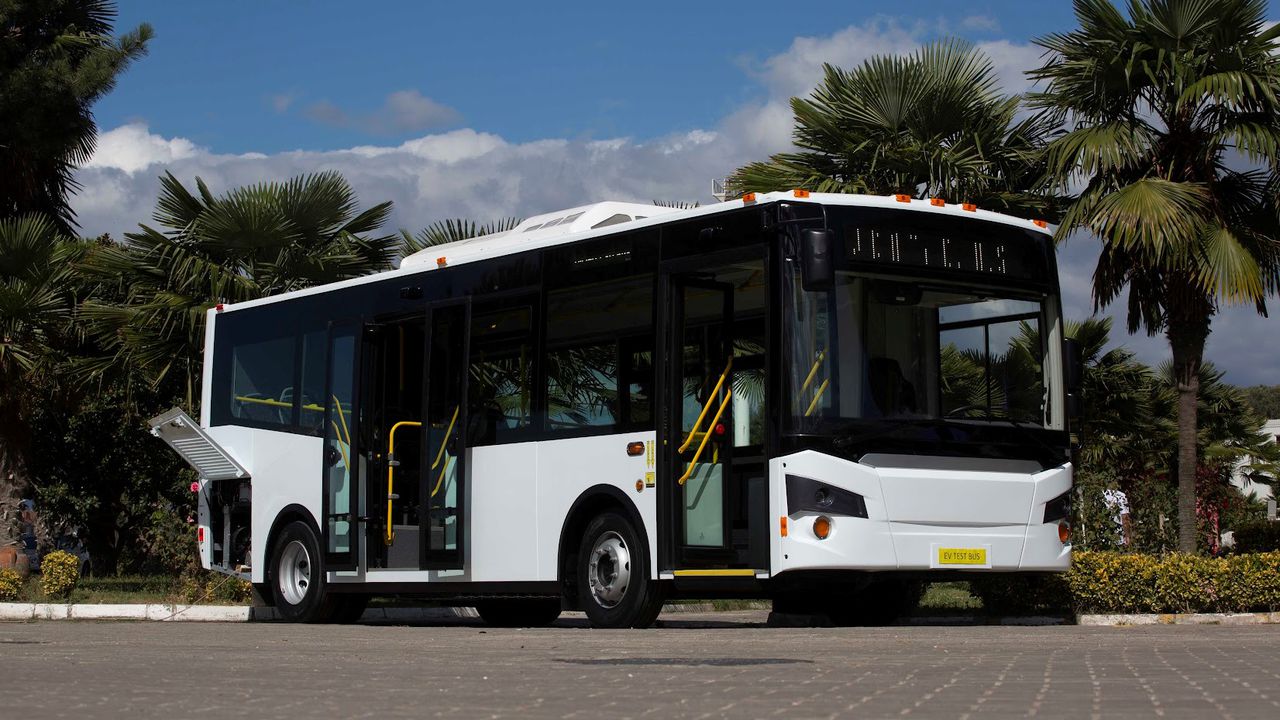
The Vicinity Motor Corp. (VMC) Lightning is one model of electric bus under consideration for deployment in Washtenaw County as part of the Western-Washtenaw Area Value Express (WAVE) fleet, serving Chelsea, Dexter and surrounding areas, including suburban Ann Arbor. WAVE has been awarded federal funding to purchase up to five electric buses but has not yet picked a model. The Lightning can carry up to 34 passengers and four mobility-aided riders, according to VMC. Provided by Vicinity Motor Corp.
WASHTENAW COUNTY, MI – Riding the WAVE could soon be a much quieter — and even more environmentally friendly — experience.
The Western-Washtenaw Area Value Express (WAVE), the transit agency serving the Chelsea, Dexter and surrounding communities, linking them to suburban Ann Arbor, is set to become among the first in Washtenaw County to roll out fully electric buses.
“Certainly one of our goals is to improve our environment, and as a public transit agency we already do that to a large degree by offering shared rides. This is taking that one step further,” said Julia Roberts, WAVE’s executive director.
The nonprofit transit group running a fleet of 15 vehicles will be swapping some of those buses out for electric models thanks to funding coming through the federal and state governments.
It participated in a collaborative application through the Michigan Department of Transportation for the federal dollars for buses and bus facilities, winning full funding to replace one of its vans and up to five of its buses with new battery-powered models, according to Roberts. It will also use the money to implement charging infrastructure and electric vehicle training.
WAVE knows there’s a demand from its users and local communities for alternatives to fossil fuel-powered vehicles.
“One of the things we heard from community members was a real interest in greener technologies and lower emissions footprints,” Roberts said.
She added WAVE hasn’t yet purchased the new buses and is evaluating low-floor, medium-duty models from companies including Plymouth-based Optimal-EV and Vicinity Motor Corp., headquartered in British Columbia, Canada.

The Optimal-EV S1 is one model of electric bus under consideration for deployment in Washtenaw County as part of the Western-Washtenaw Area Value Express (WAVE) fleet, serving Chelsea, Dexter and surrounding areas, including suburban Ann Arbor. WAVE has been awarded federal funding to purchase up to five electric buses but has not yet picked a model.Provided by Optimal-EV
Roberts expects the state will receive the federal funding in June and WAVE will complete its portion of the funding agreement by the end of September, likely buying the first buses in October for delivery in the fall or in 2024, depending on manufacturer timelines.
In the meantime, the transit agency plans to test out an electric bus model this spring or summer, allowing community members and riders to experience it first hand.
The electric buses will likely first be used with lower distance routes, like the Chelsea Community Ride, a shuttle that operates daily in the city, traversing Chelsea’s business district.
The electric vehicles could also be used for longer routes, like the Community Connector, between western Washtenaw County and the Jackson Road corridor outside Ann Arbor, if WAVE is able to implement level 3 fast chargers that could power up the buses while drivers are on break, in short periods of time.
WAVE isn’t alone in Washtenaw County in planning to implement the technology. People’s Express, a low-cost public transportation service based in Whitmore Lake, also participated in the funding application, according to Roberts.
The two are set to become the first transit agencies in the Ann Arbor area to roll out electric busses, she said.
The Ann Arbor Area Transportation Authority, also known as The Ride, is weighing zero tailpipe emission buses as well, last year releasing a report that discussed both battery and hydrogen fuel cell technologies.
Read more: Ann Arbor transit system weighing pros and cons of electric buses
The University of Michigan is also set to add several electric buses to its fleet.
Ann Arbor Public Schools began deploying some electric school buses in its fleet in January 2021. Ypsilanti Community Schools plans to start deploying 10 electric buses in 2024.
The funding WAVE has been awarded stretches over multiple years, and the transit agency may not purchase all of the electric vehicles at once, Roberts said. It plans to evaluate the battery-powered buses and eventually move its full fleet to electric vehicles or other green technologies in the future.
Riders will immediately notice the buses are quieter, and the models WAVE is considering also have larger windows than those in its current fleet, Roberts said.
The electric buses come with a larger up-front cost when compared to gas-powered vehicles, she said. While the transit agency will save on fuel costs, it also doesn’t know exactly how much maintenance expenses will be over their lifespans. WAVE should be able to better determine those costs through experience with its first electric models, according to the executive director.
“It’s more than just the cost savings, it’s also how we’re contributing to a better community for the future,” she said. “There’s a value added there.”

